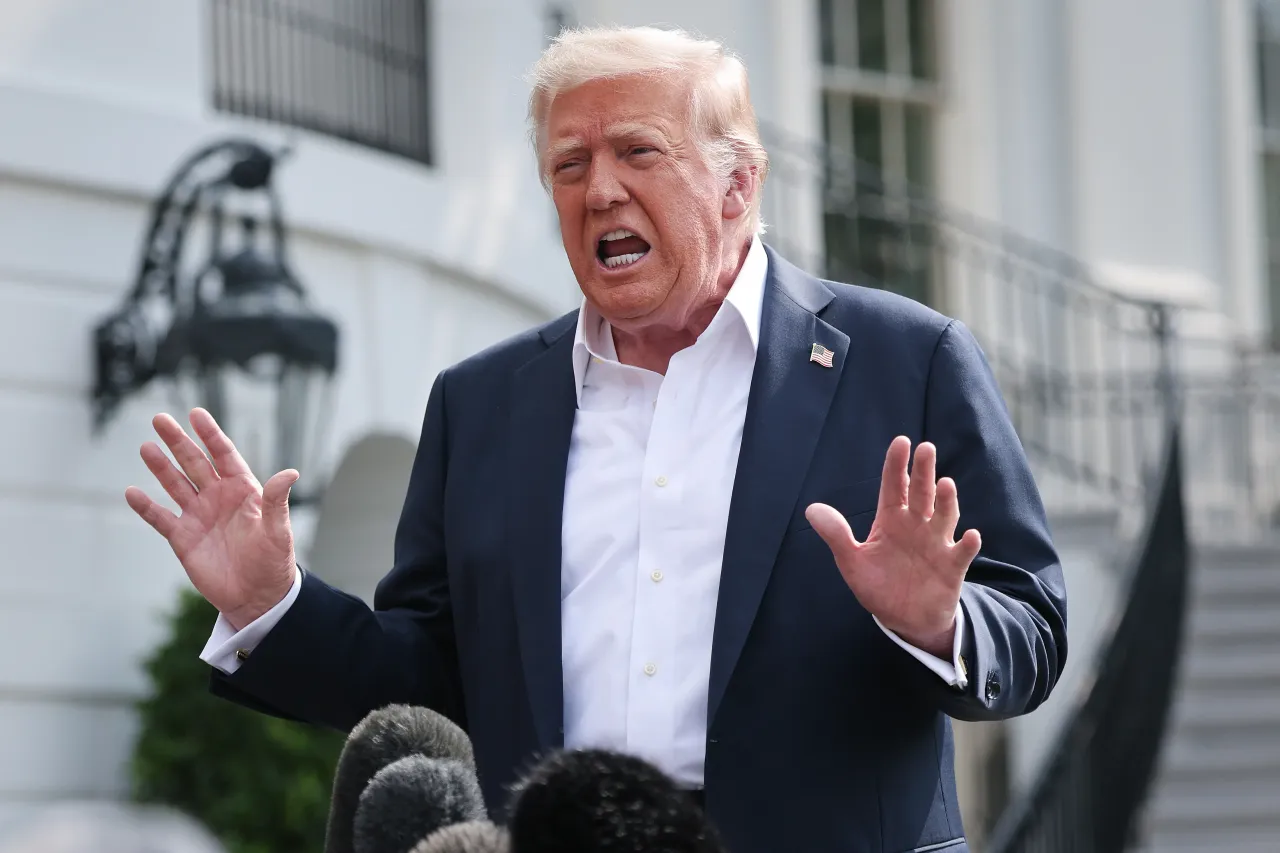Advertisement|Remove ads.
Trump Strikes Deal With House Republicans To Advance Crypto Legislation After Facing Congressional Roadblock

U.S. President Donald Trump intervened late on Tuesday to persuade Republican holdouts in the House of Representatives after a failed procedural vote on cryptocurrency bills dampened optimism surrounding digital asset firms.
Trump posted on Truth Social that he has reached an agreement with 11 of the 12 Republicans in the House, whose votes are necessary to pass the GENIUS Act, a legislation to provide a regulatory framework for stablecoin cryptocurrencies.
“After a short discussion, they have all agreed to vote tomorrow morning in favor of the Rule,” Trump said.
“Speaker of the House Mike Johnson was at the meeting via telephone, and looks forward to taking the Vote as early as possible. I want to thank the Congressmen/women for their quick and positive response,” he added.
On Tuesday, crypto-focused stocks such as Circle and Coinbase slipped in extended trading after 13 Republicans joined Democrats in voting against formalizing the rules of debate on the bills.
Retail sentiment on Stocktwits on Circle was in the ‘bearish’ territory, while traders were still ‘bullish’ about Coinbase.
While it’s unclear what concessions were made by Trump to win support from the holdouts, the agreement will likely help the House proceed with the three cryptocurrency bills and provide funding for the Pentagon for fiscal year 2026 on Wednesday, after Tuesday’s snag.
House Republicans had earlier dubbed this week the ‘Crypto week’ as they were seeking to advance several legislations that the crypto industry has demanded for a long time.
The so-called ‘Genius Act’ will regulate stablecoin digital assets, which are typically pegged at a 1:1 ratio with the U.S. dollar. Crypto users often utilize stablecoins to transfer funds between more volatile cryptocurrency assets. In a rare show of bipartisan support, the bill passed on the Senate floor with a 68-30 vote last month.
The House will also debate the ‘CLARITY Act’, which aims to clarify whether digital assets will be treated as commodities or securities.
Another bill seeks to ban the Federal Reserve from issuing a central bank digital currency (CBDC), which Republicans believe could hinder Americans' financial freedom.
After the vote failed on Tuesday, Georgia Representative Marjorie Taylor Greene said that she voted ‘no’ as the GENIUS Act did not ban the CBDCs and because Speaker Johnson did not allow them to submit amendments to the proposed legislation.
Also See: Trump Announces Over $90B In AI And Energy Investments In Pennsylvania
For updates and corrections, email newsroom[at]stocktwits[dot]com.














/filters:format(webp)https://st-everywhere-cms-prod.s3.us-east-1.amazonaws.com/large_novavax_vaccine_resized_455cef63e9.jpg)
/filters:format(webp)https://news.stocktwits-cdn.com/shivani_photo_jpg_dd6e01afa4.webp)
/filters:format(webp)https://st-everywhere-cms-prod.s3.us-east-1.amazonaws.com/Array_Tech_b34d437c86.jpeg)
/filters:format(webp)https://news.stocktwits-cdn.com/vivekkrishnanphotography_58_jpg_0e45f66a62.webp)
/filters:format(webp)https://news.stocktwits-cdn.com/large_immunitybio_stock_jpg_9eab8bde17.webp)
/filters:format(webp)https://news.stocktwits-cdn.com/large_Getty_Images_2250929477_jpg_725f832b99.webp)
/filters:format(webp)https://news.stocktwits-cdn.com/Getty_Images_1238344200_1_jpg_9ec6a1a77a.webp)
/filters:format(webp)https://news.stocktwits-cdn.com/large_aurinia_pharmaceuticals_jpg_021df4af64.webp)
/filters:format(webp)https://st-everywhere-cms-prod.s3.us-east-1.amazonaws.com/Rounak_Author_Image_7607005b05.png)